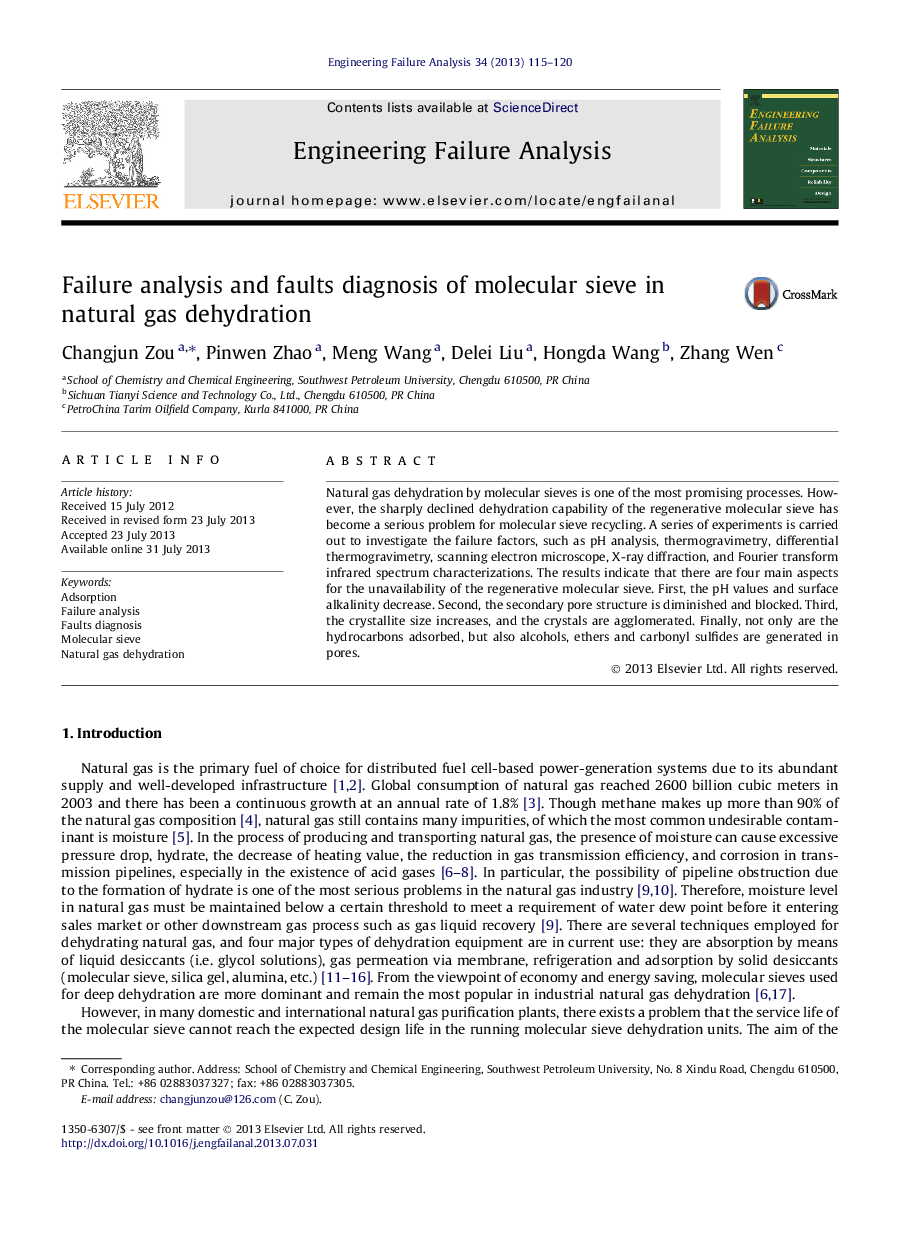| Article ID | Journal | Published Year | Pages | File Type |
|---|---|---|---|---|
| 768499 | Engineering Failure Analysis | 2013 | 6 Pages |
•The work investigates failure factors of molecular sieve in natural gas dehydration.•pH values and surface alkalinity of the molecular sieve has decreased.•The secondary pore structure of the molecular sieve is diminished and blocked.•The crystallite size has increased, and the crystals are agglomerated.•The alcohols, ethers and carbonyl sulfides have been generated in pores.
Natural gas dehydration by molecular sieves is one of the most promising processes. However, the sharply declined dehydration capability of the regenerative molecular sieve has become a serious problem for molecular sieve recycling. A series of experiments is carried out to investigate the failure factors, such as pH analysis, thermogravimetry, differential thermogravimetry, scanning electron microscope, X-ray diffraction, and Fourier transform infrared spectrum characterizations. The results indicate that there are four main aspects for the unavailability of the regenerative molecular sieve. First, the pH values and surface alkalinity decrease. Second, the secondary pore structure is diminished and blocked. Third, the crystallite size increases, and the crystals are agglomerated. Finally, not only are the hydrocarbons adsorbed, but also alcohols, ethers and carbonyl sulfides are generated in pores.
